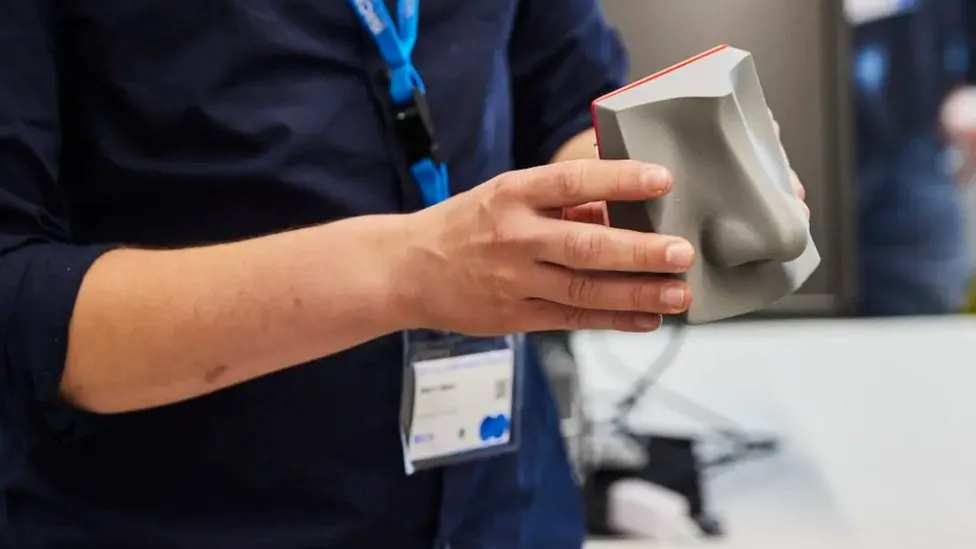The electronic nose designed to prevent food poisoning

The electronic nose designed to prevent food poisoning nose has around 400 scent receptors that are said to be able to detect food poisoning.
The challenge of replicating such a level of sensory expertise in scientific equipment is daunting.
Artificial intelligence (AI) has enabled the latest electronic noses – sensors that detect and report specific smells – to significantly improve their speed and accuracy thanks to recent improvements in AI.
A common type of potentially deadly foodborne bacteria is salmonella, and another type is E. Coli. According to Professor Raz Jelinek, co-developer of an electronic nose called Sensifi and professor of chemistry at Ben Gurion University of the Negev, both have their own electronic personalities. “They have their own electrical signals.”
Electrodes in the E-noses manufactured by the Israeli company of the same name are coated with nanoparticles of carbon. They detect smells or volatile organic compounds (VOC) given off by bacteria.
In the Sensifi machine, different strains of bacteria produce different VOC fingerprints, which in turn produce different electric signals. A software system based on artificial intelligence records this information and checks it against an ever-growing database.
Sensifi hopes to revolutionize the fight against infections in the food industry with its launch earlier this year. In most cases, food producers have to send samples to a laboratory for testing, and then wait for the results to come back, says the company’s chief executive Modi Peled.
On the other hand, Sensifi’s e-noses can be used by food firms on site and are said to produce results in less than an hour. Although the company has not released a price for its machines, it says they will be “low cost”. The firm instead intends to make most of its money from subscription fees.
